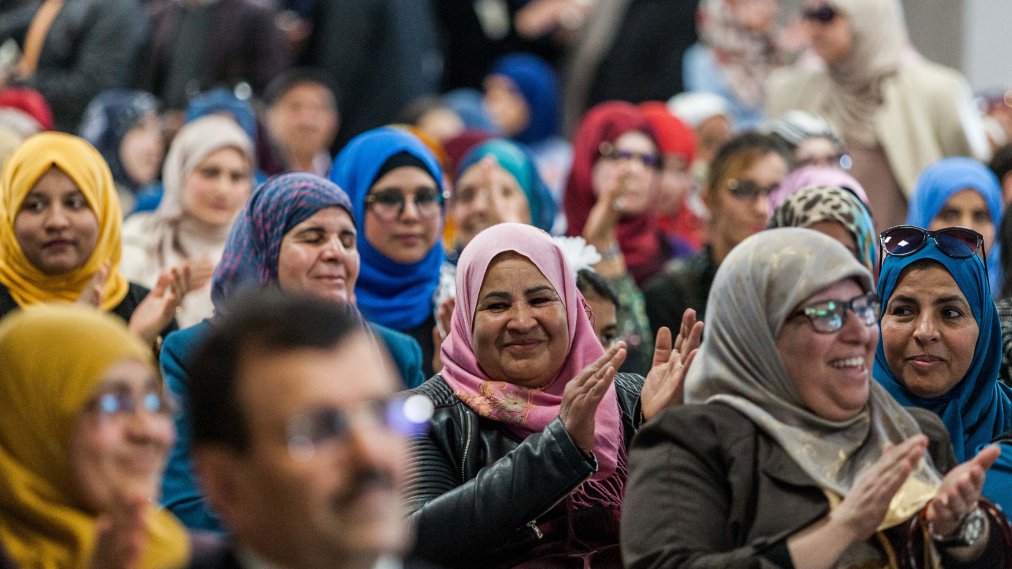In the 1990s, Ahlem Behladj learned to brave being hassled each day by the police officers that hung around outside the women’s shelter in downtown Tunis. This was during the 23-year-long dictatorship of Zine el Abidine Ben Ali, and the dilapidated building was a rare protected space for battered women—and the place where a 19-year-old Behladj and her fellow activists gathered to fight for a law on violence against women.
It was a fight that would take decades. But on July 26, 2017, Behladj was moved to tears as she watched from the public gallery in parliament as lawmakers passed legislation aimed at eliminating violence against women. The law is far-reaching: Among its many stipulations it forbids physical, economic and psychological abuse against women and outlaws harassment in public. It also scrapped a loophole that allowed rapists to avoid jail by marrying their victims.
In a country where 53 percent of women have experienced violence of some kind—significantly higher than the estimated global rate of 35 percent—the law was a huge win for activists. “On paper, I think it’s the best law in the region and probably one of the best in the world,” says Amna Guellali, senior Tunisia and Algeria researcher at Human Rights Watch.
But one year on, while the law has had some positive effects, serious failings in implementation mean it’s not delivering the drastic improvement in protection and prosecution that it promised. Activists are now pressing on to make sure the hard-won legislation makes a real difference to women’s lives.
The Long Road to Justice
Activists at Association Tunisienne Des Femmes Démocrates (ATFD) are on the frontline of the fight. This was the organization that in its early days under the dictatorship set up the first shelter for women. Behladj, now 53, remains an active member, balancing her time there with her work as a child psychiatrist. As she sips coffee in a cafe in downtown Tunis, she recalls the earliest days of the struggle for women’s rights. “I was young and passionate and I cared about injustice,” she explains, “Women’s rights were a crucial part of the fight for justice generally.” Behladj is warm and calm with a gentle sense of humor. But judging by how she has chosen to spend her life so far, that calmness belies considerable strength.
Behladj’s day job fueled her activism. She qualified as a child psychiatrist in 1995, and over the years came across many young girls and teenagers coerced into marrying their rapists. The law had long allowed a rapist of a girl or woman younger than 20 to avoid a jail sentence if he married her. He was free to divorce her after two years. There was always pressure, from the perpetrator and his family, but also from her own family, Behladj says, because marriage was seen as a way the perceived shame of rape could be avoided.
As a member of ATFD and as the organization’s President between 2004 and 2006, and again between 2011 and 2013—a volunteer role she took on alongside her work as a child psychiatrist—she campaigned hard for the removal of the marry-your-rapist clause.
When a marriage starts with rape, that act of violence is rarely the last. Behladj looks down at her coffee and breathlessly lists some of the cases she had dealt with. “One girl I remember—she was forced to marry her rapist at 12. I worked with her until the age of 20. The violence she went through over those eight years was terrible.”
But when the new law came into force in February, it marked a huge change, she says.
Read article here.


 Charlotte Bailey
Charlotte Bailey
